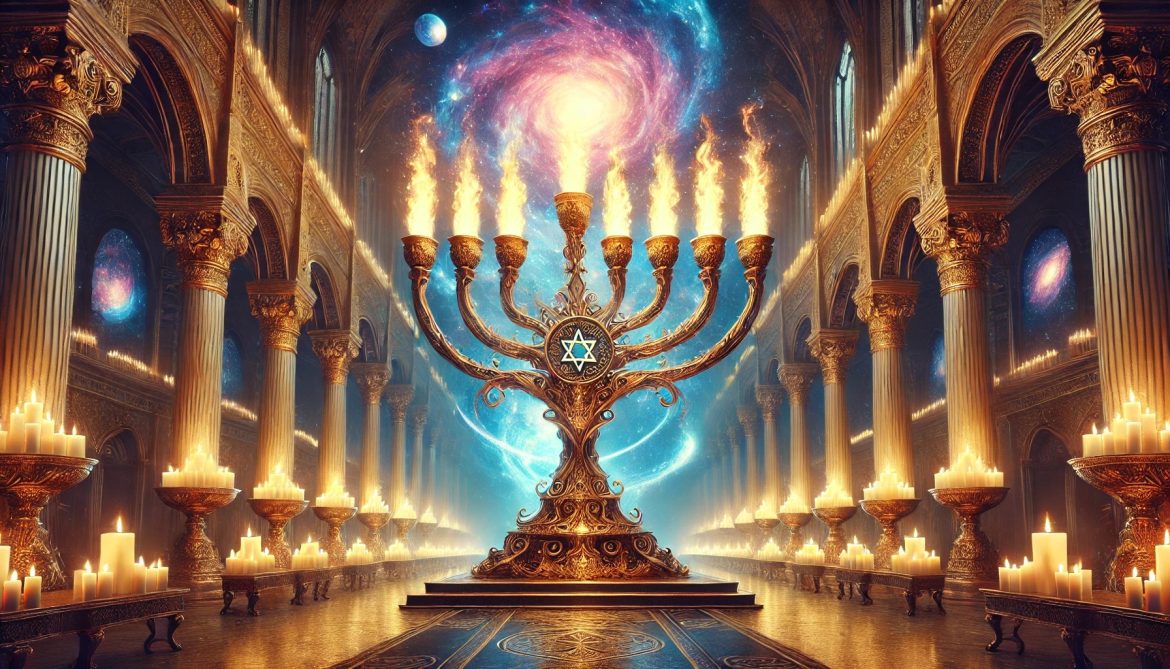Introduction
Pastor Mark Biltz, of El Shaddai Ministries’, in a recent teaching, the importance of the Torah portion “Beha’alotcha” was highlighted, which means “when you rise up.” This portion connects to the duty of the priests to light the menorah, an act rich with symbolic significance. Let’s delve into the layers of meaning within this portion and its connection to other biblical texts.
The Symbolism of the Menorah
In the ancient temple, the menorah’s flames were not centralized but pointed towards the center. This unique design underscores the central flame’s importance, which symbolizes the divine presence. The Torah portion reiterates the commandment given to Moses for Aaron to light the seven lamps, representing the divine light spreading throughout the community.
Connections to the Heavenly Menorah
The earthly menorah is a reflection of the heavenly menorah, as seen in Revelation 4:5, which describes seven lamps of fire before God’s throne, symbolizing the seven spirits of God. This celestial imagery links back to the menorah in the Tabernacle, illustrating a divine pattern followed on earth.
The Seven Spirits and the Seven Churches
The seven lamps also represent the seven spirits of God and the seven churches mentioned in Revelation. This multi-layered symbolism shows how different aspects of the divine plan coexist without negating each other.
Prophetic Visions in Zechariah
Zechariah’s visions further illuminate the significance of the menorah. In Zechariah 4:5-6, the angel explains the menorah’s symbolism to Zechariah, highlighting that divine power comes “not by might nor by power, but by my Spirit.” This reinforces the message of relying on divine guidance rather than human strength.
The Central Role of Yeshua
In the Book of Revelation, John sees a vision of Yeshua, the Lamb with seven eyes, symbolizing the seven spirits of God. This vision underscores Yeshua’s integral role as the central figure in God’s plan, linking back to the menorah’s central flame.
Understanding Names and Their Meanings
Biblical names carry deep meanings, often reflecting the character and attributes of individuals. The genealogy from Adam to Noah reveals a hidden message about God’s plan for salvation, showing how names are not just labels but encapsulate divine intentions.
The Importance of Hebrew Language
Hebrew, the language of the Bible, holds profound insights that are often lost in translation. For instance, the Hebrew word for manna (מָן) reveals deeper meanings when examined in its original context. This highlights the importance of studying the Bible in its original language to fully grasp its divine messages.
God’s Attributes of Mercy and Compassion
God’s name in Hebrew, represented by the Tetragrammaton (YHWH), reflects His attributes of mercy and compassion. These attributes are emphasized before and after sin, showing God’s enduring love and willingness to forgive.
Calling Upon the Name of the Lord
The concept of calling upon the name of the Lord for salvation is deeply rooted in the Hebrew Scriptures. This practice is not about a magical incantation but about invoking God’s character and promises. The New Testament reiterates this, emphasizing the continuity of God’s nature across both Testaments.
The Relationship Between God and Humanity
The relationship between God and humanity is central to biblical teaching. God’s desire for a covenantal relationship with His people involves mutual responsibilities and the promise of mercy and forgiveness. This relationship is vividly illustrated in the narratives of the Israelites and their journey through the wilderness.
Conclusion
Understanding the layers of meaning in the Torah portion “Beha’alotcha” and its connections to other biblical texts deepens our appreciation of God’s intricate plan and His attributes of mercy and compassion. By studying the original Hebrew and reflecting on the symbolic significance of the menorah and other elements, we can gain a richer understanding of the divine narrative.




